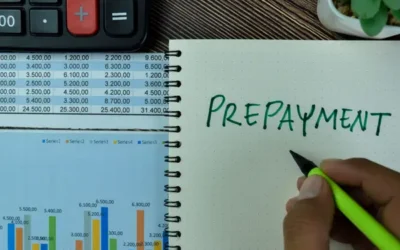Selling a home can be a complex process, especially when there’s still a mortgage on the property. With housing market fluctuations and rising interest rates, homeowners may wonder how selling a home with an existing mortgage will impact the sale.
The good news is that selling a home with a mortgage is common, and while it requires some planning and understanding of the process, it’s entirely possible to sell your home without significant hurdles.
This guide covers what you need to know about selling a mortgaged home, including current market conditions, potential challenges, and expert insights to help you navigate the process smoothly.
Current Housing Market Overview in 2024
As of 2026, the housing market continues to experience a slight cooldown after the explosive growth of the previous two years. According to Zillow, the average home price in the U.S. has seen a 3.5% decline year-over-year, sitting at around $375,000. Mortgage rates remain elevated, hovering around 6.5%, which has cooled down buyer enthusiasm but hasn’t completely slowed down the market.
- Mortgage Rates: Current mortgage rates remain higher than in previous years, with an average of 6.5% for a 30-year fixed-rate mortgage.
- Home Inventory: The inventory of homes on the market has increased slightly, providing more options for buyers but leading to longer selling times for homeowners.
- Buyer Trends: Buyers are more cautious due to high borrowing costs, leading to fewer bidding wars and a slower pace of price appreciation.
Selling a Home with a Mortgage: The Basics
If you’re selling a home with an outstanding mortgage balance, the process is largely similar to selling a home that is paid off, but there are a few additional steps and considerations:
- Pay Off Your Mortgage: When you sell your home, the proceeds from the sale will first go toward paying off the remaining balance of your mortgage. This is typically done at the closing, and your lender will provide the exact payoff amount, including any interest or fees.
- Calculate Your Equity: Equity is the difference between your home’s market value and the remaining balance on your mortgage. For example, if your home is worth $400,000 and your remaining mortgage balance is $250,000, you have $150,000 in equity. This equity will go to you after the mortgage is paid off, minus any selling expenses.
- Closing Costs: Selling a home typically comes with closing costs that can range from 6% to 10% of the sale price. These costs include agent commissions, transfer taxes, and title fees, which will be deducted from your final proceeds.
- Break-Even Point: To avoid losing money on the sale, you’ll want to ensure that the sale price covers the remaining mortgage balance, closing costs, and any other selling expenses. If you owe more than your home is worth, this is called being “underwater,” and you may need to explore other options, such as a short sale.
Step-by-Step Process to Sell a Home with a Mortgage
- Find Out Your Mortgage Payoff Amount: Contact your lender to request your mortgage payoff amount. This figure includes your outstanding principal balance, any accrued interest, and any fees or penalties for paying off the loan early.
- Determine Your Home’s Value: Hire a real estate agent or get a comparative market analysis (CMA) to determine your home’s current market value. You can also use online tools to get an estimate of your home’s worth, but a professional evaluation is usually more accurate.
- Estimate Your Selling Costs: Selling a home comes with several costs, including real estate agent commissions (typically 5% to 6% of the sale price), closing costs, and potential repairs or staging expenses. Be sure to factor these into your calculations to determine how much you’ll walk away with after the sale.
- List Your Home: Once you’ve determined your home’s value and calculated your selling costs, it’s time to list your home for sale. Your real estate agent will help you market your property, host open houses, and negotiate with potential buyers.
- Negotiate Offers: When you receive offers on your home, you’ll need to weigh the terms carefully. Consider not only the offer price but also the buyer’s ability to close quickly, the type of financing they’re using, and any contingencies (such as inspections or appraisals).
- Closing the Sale: Once you accept an offer, the closing process begins. This is when the buyer finalizes their financing, and the sale officially transfers ownership. At the closing, the proceeds from the sale will go toward paying off your mortgage, and any remaining balance will be paid to you after closing costs.
Key Considerations When Selling a Mortgaged Home
- Prepayment Penalties: Some mortgages come with prepayment penalties, which are fees charged if you pay off your loan early. Be sure to check your loan documents to see if this applies to your mortgage.
- Timing: If you’re planning to buy a new home while selling your current one, timing is critical. You’ll need to ensure that the closing dates align or have a plan for temporary housing if your current home sells before you find a new one.
- Negative Equity: If you owe more on your mortgage than your home is worth, selling the home may not fully cover your outstanding loan balance. In these cases, you might need to bring cash to the closing table to make up the difference, or consider a short sale if approved by your lender.
Expert Insights on Selling with a Mortgage
To gain a better understanding of the market dynamics, we reached out to several mortgage experts:
- John Reynolds, a Senior Loan Officer at Mortgage Elite Services, says, “In 2026, homeowners should be cautious about timing the sale of their home. With interest rates still high, buyers are more selective, and homes may take longer to sell. Having a solid understanding of your home’s market value and remaining mortgage balance will help ensure a smooth transaction.”
- Sarah Martinez, a Housing Advisor at First Home Consultants, notes, “Sellers with mortgages should keep a close eye on market trends. In some areas, prices have stabilized, but in others, they’ve declined slightly. You’ll want to price your home competitively and ensure that your mortgage is factored into your selling strategy.”
- David Chen, CEO of Premier Lending Solutions, emphasizes, “Homeowners selling with a mortgage need to be aware of prepayment penalties or fees associated with paying off their loan early. It’s always best to consult with your lender before listing your home to avoid any surprises at closing.”
Costs Involved in Selling a Home with a Mortgage
| Cost | Amount |
|---|---|
| Real Estate Agent Fees | 5% to 6% of sale price |
| Closing Costs | 2% to 5% of sale price |
| Mortgage Payoff | Remaining mortgage balance, including interest |
| Prepayment Penalty | Varies by lender (if applicable) |
| Repairs and Staging | Variable, depending on the condition of the home |
FAQs
1. Can I sell my home if I still owe on the mortgage?
Yes, you can sell your home even if you still have a mortgage. The remaining balance of your mortgage will be paid off at closing from the proceeds of the sale.
2. How do I know how much I owe on my mortgage?
Contact your lender to request a mortgage payoff amount, which will include the remaining principal balance, any accrued interest, and possible fees.
3. What happens if I sell my home for less than I owe on the mortgage?
If you sell your home for less than the remaining mortgage balance, you will need to make up the difference, either by bringing cash to the closing or exploring options like a short sale.
4. Are there any penalties for paying off a mortgage early?
Some mortgages have prepayment penalties for paying off the loan early. Check your loan documents or consult your lender to see if this applies to you.
5. Do I need to pay off my mortgage before selling?
No, you don’t need to pay off your mortgage before selling. The outstanding mortgage balance will be paid off from the proceeds of the sale at closing.
6. What happens to my mortgage when I sell my house?
At closing, the proceeds from the sale will be used to pay off your remaining mortgage balance. Any leftover money after covering selling costs will be yours.
7. How does selling a home with a mortgage affect my credit score?
Selling a home typically has no direct impact on your credit score, but paying off your mortgage can positively affect your credit by reducing your debt-to-income ratio.
8. Can I buy a new home before selling my current one with a mortgage?
Yes, you can buy a new home while selling your current one. However, you will need to manage the timing of both transactions carefully and may need to secure temporary financing or housing.
The Bottom Line
Selling a home with a mortgage is a common process, but it requires careful planning to ensure a smooth transaction.
Understanding your mortgage payoff amount, calculating your home’s equity, and factoring in potential closing costs are essential steps to take before listing your property.
In 2026, with fluctuating home prices and high mortgage rates, it’s crucial to be mindful of market conditions and any prepayment penalties that may apply.
By working closely with your lender and real estate agent, you can successfully navigate the sale, cover your remaining mortgage balance, and hopefully walk away with a solid profit.







